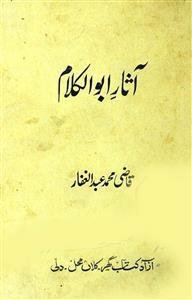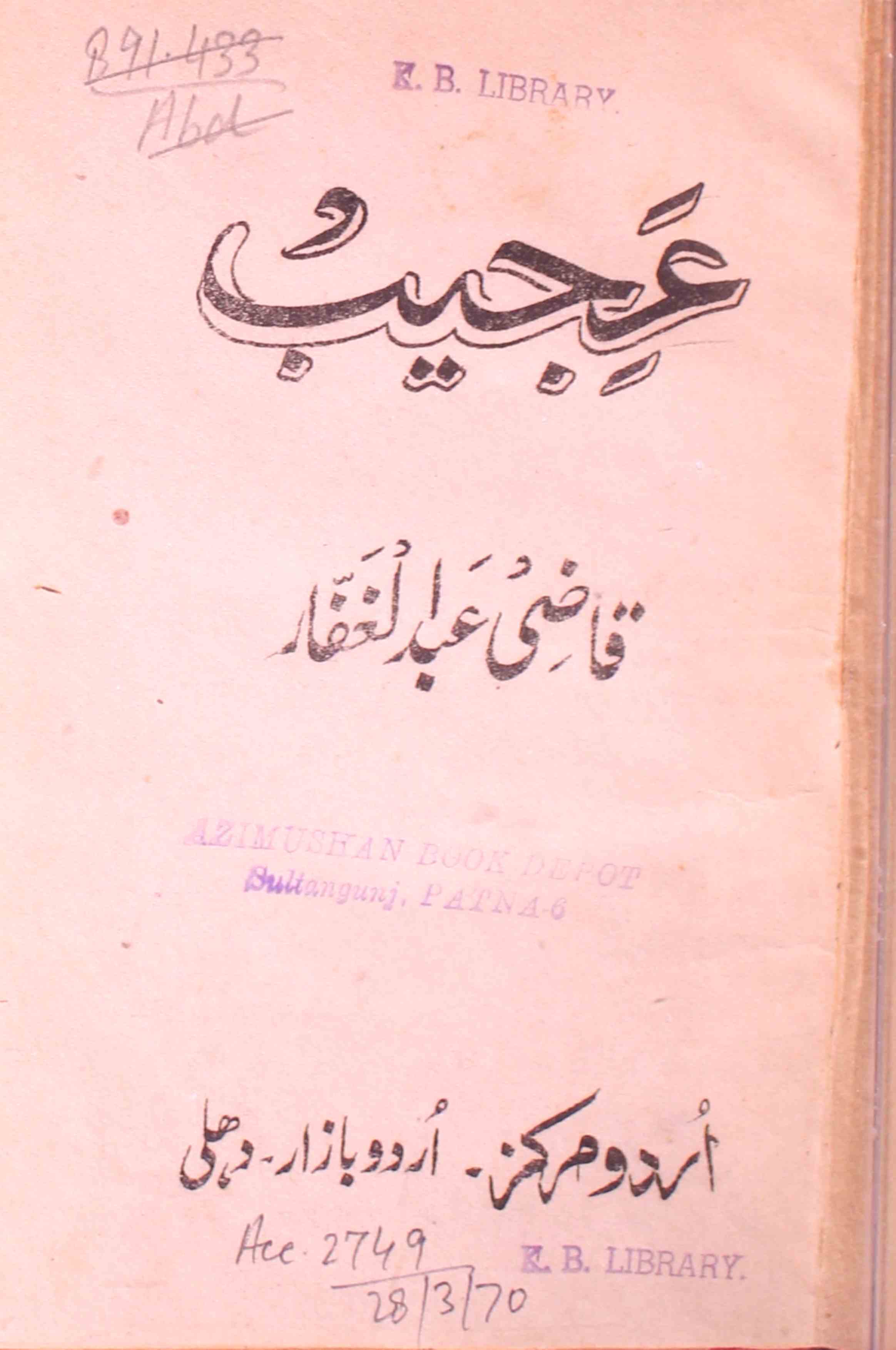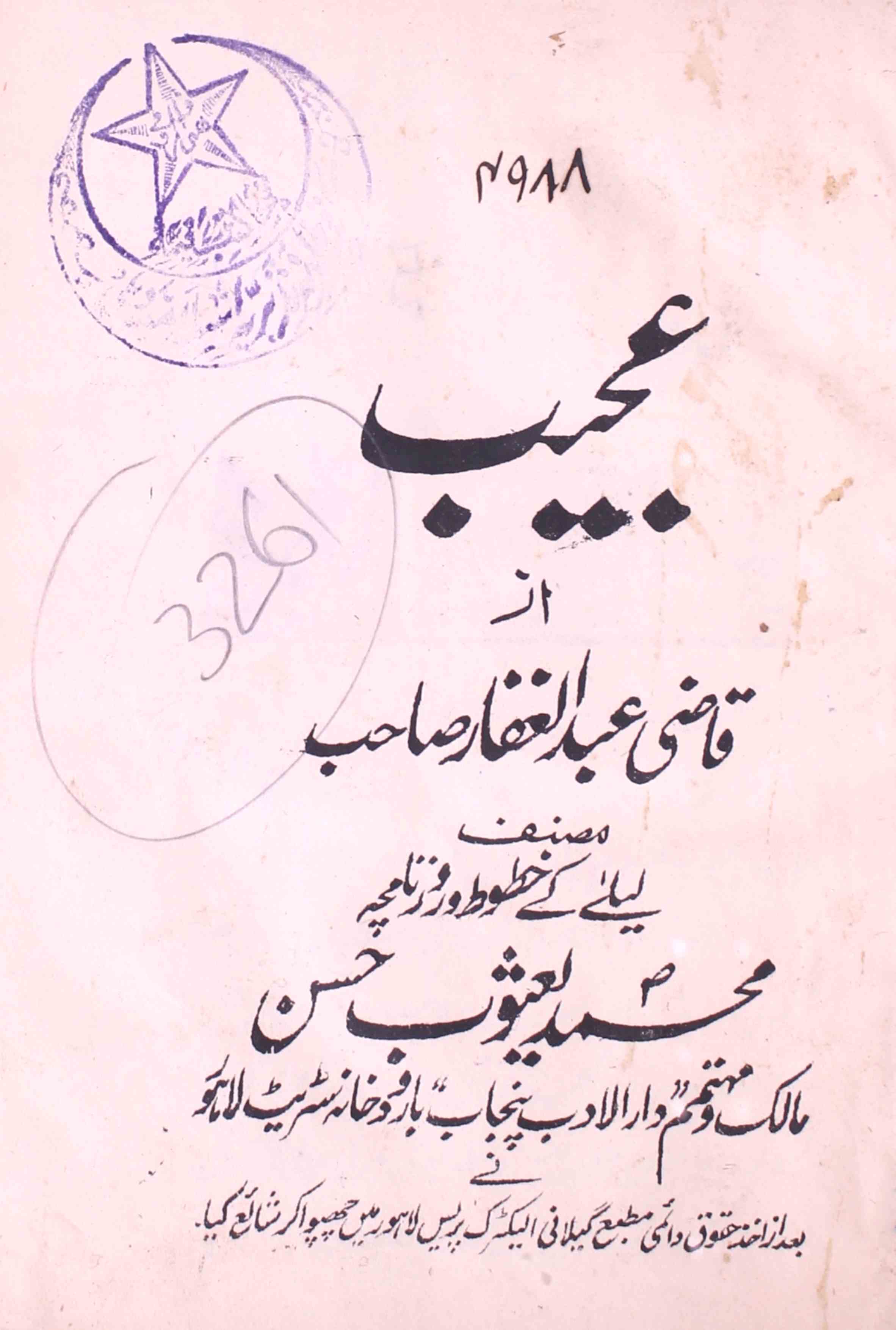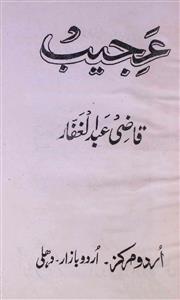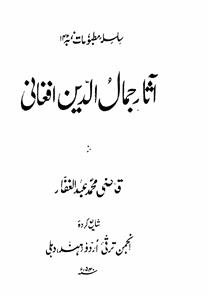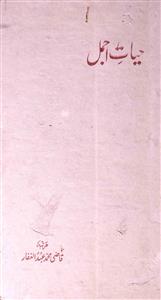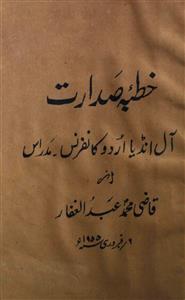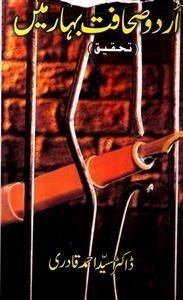 For any query/comment related to this ebook, please contact us at haidar.ali@rekhta.org
For any query/comment related to this ebook, please contact us at haidar.ali@rekhta.org
About The Book
اس کتاب کے مصنف قاضی عبد الغفار ہیں۔ ان کے بارے میں یہ جاننا اہم ہے کہ وہ نہ صرف مولانا آزاد کے ہم عصر تھے بلکہ ان کی ان سے بالمشافہ ملاقاتیں رہتی تھیں۔ اس اعتبار سے یہ کتاب زیادہ اہمیت اختیار کر لیتی ہے۔ اس کتاب میں قاضی صاحب نے مولانا کا جائزہ نفسیاتی طور پر لیا ہے، لیکن دلچسپ یہ ہے کہ اس میں انہوں نے ان کی تحریروں سے زیادہ استفادہ کیا ہے۔ یوں تو مولانا کی زندگی ہمہ گیر علوم و فنون کا مجمع البحار تھی لیکن ان کی زندگی کو سمجھنے کے لیے تذکرہ، الہلال، البلاغ اور غبار خاطر سے بڑھ کر کچھ بھی نہیں۔ قاضی صاحب نے اس کتاب میں مذکورہ تحریروں کو ہی بنیاد بنایا ہے۔ یہ کتاب مولانا ابوالکلام آزاد کی ہمہ داں شخصیت کا ایک بالکل الگ زاویہ پیش کرتی ہے۔
About The Author
Qazi Abdul Ghaffar, the author of "Laila Ke Khutuut" and "Majnoon Ki Diary", was originally a journalist. His eloquent writings became a source of pride for many newspapers.His hometown was Muradabad, that is where his primary education took place. He came to Aligarh for higher education. He started his career in journalism when he first became associated with "Hamdard" (Delhi) as an aide to Maulana Muhammad Ali. A few days later he left Delhi for Calcutta and from there started the daily Jamhoor. Then he went to Hyderabad and issued "Paigham".
Apart from journalism, he also had a keen interest in biography and history. Ashar Jamaluddin, Hayat Ajmal, Yadgar Abul Kalam Azad are the famous personalities' biographies penned by him. The last days of his life were spent in the service of Anjuman-e-Taraqqi Urdu (India). He served as the secretary of the association for a long time. During this time he was also the editor of the association's "Hamaari Zabaan".
There was a deep sense of sophistication in Qazi Sahib's life as well as in his writings. He was very elated about dressing, food, and life. In the same way, he proves his subtlety in writing by choosing each word very thoughtfully and employing a simple, reader-friendly expression. It is a feature of Qazi's prose writing. The use of selected poems is very common among his writings. Most essays begin with a poem and usually end with a couplet.
 For any query/comment related to this ebook, please contact us at haidar.ali@rekhta.org
For any query/comment related to this ebook, please contact us at haidar.ali@rekhta.org
Write a Review
Jashn-e-Rekhta 10th Edition | 5-6-7 December Get Tickets Here
